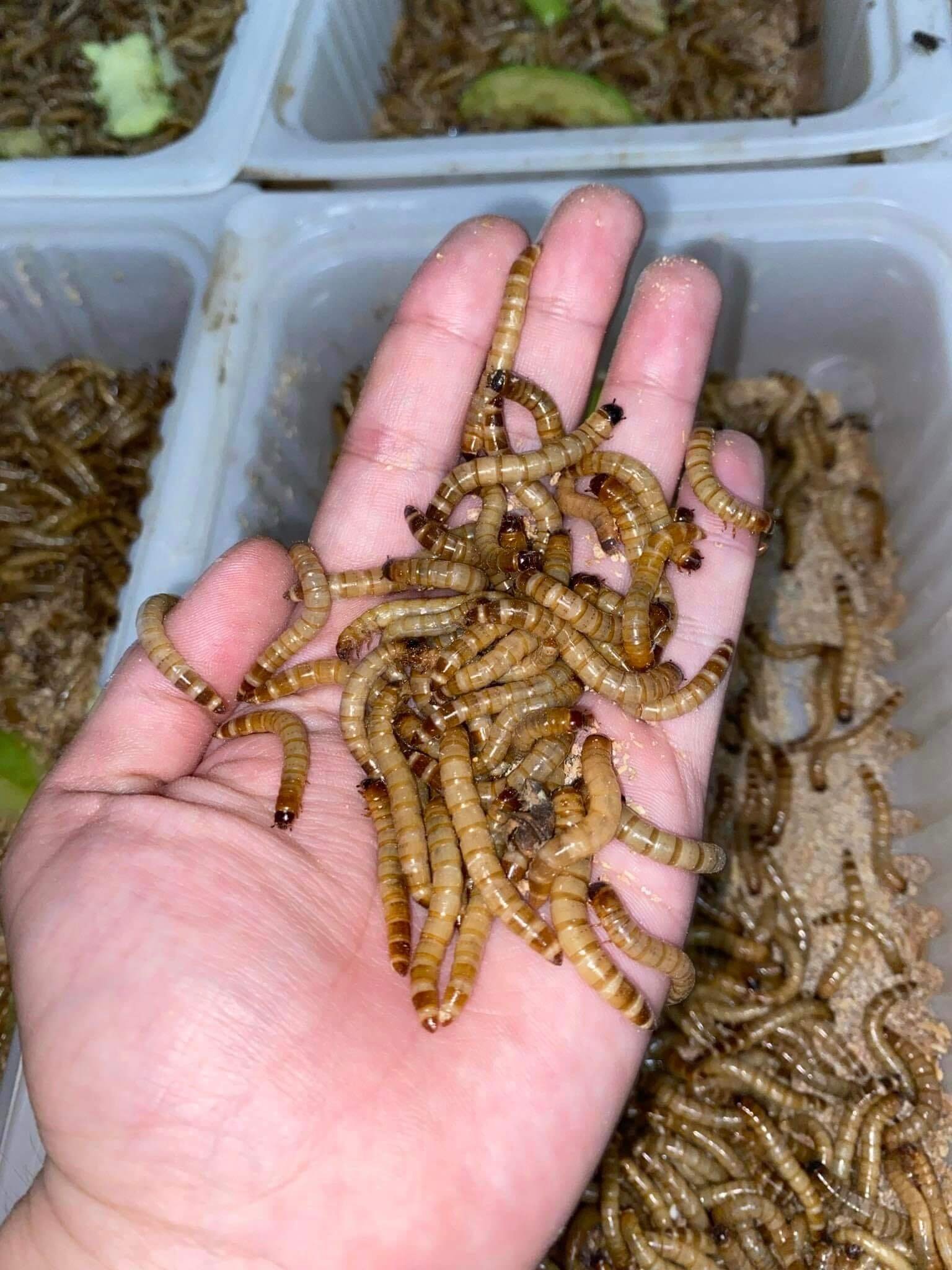Misunderstanding about mealworms feeding habits
Knowing about mealworms feeding habits are important. It helps not only pet owners but also educators & researchers, and anyone who handles them. This article dives into mealworm behavior, looking at whether they bite and what you can expect when dealing with them.You can usually find mealworms in grain stores. They munch on grains, decaying leaves, and other organic stuff. Their ability to adapt makes them simple to raise, which is why people use them for both commercial and home food sources
Do Mealworms Bite?
To get why these guys might bite, it helps to look at their anatomy. Mealworms have tiny pincher-like mandibles for chewing. These little mouthparts can break down plant materials—like grains and dead organic matter—which make up their main diet. But don’t worry! Their mandibles are too weak to hurt human skin.When a mealworm “bites,” it’s often more about exploring than being defensive. If they sense something edible or just want to check something out, they might nip your fingers or hand. The feeling is more like a light pinch rather than a serious bite—and most of the time, you won’t even notice it! 1. **Exploration:** They like using their mandibles to check out new surroundings. When they feel something different, they might nip at it to see if it’s food.
2. **Hunger:** If a mealworm’s feeling particularly hungry, due to mealworms feeding habits try biting anything nearby while looking for something tasty. Still, it’s mostly just curious.
3. **Mistaking Fingers for Food:** If you’ve been handling some food or things that smell good to them, they could mistake your fingers for their dinner and try taking a nibble—again, this bite won’t hurt!
Are Mealworm Bites Harmful?
Just so you know—mealworm bites aren’t harmful at all! Their mouthparts are too tiny & weak to break human skin, plus they don’t carry any toxins or anything bad! For nearly everyone—even those with sensitive skin—a mealworm bite won’t cause any problem.Still, it’s smart to wash your hands after handling them—just in case there’s bacteria or other yucky stuff on your hands or on them. This becomes super important if you’re giving mealworms to pets since keeping things clean matters for their health.
How to Handle Mealworms Safely?
Worried about being bitten by a mealworm or Beetles ? No problem! Here are some handy tips:
1. **Use Tweezers or Gloves:** If handling them directly makes you uneasy—grab some tweezers or wear gloves! It works great especially if you’re managing lots of them or feeding them to pets. 2. **Keep Hands Clean:** Always wash those hands before & after dealing with mealworms! This helps avoid any leftover smells that could attract them and keeps things clean.
3. **Handle Gently:** Remember that mealworms are kind of fragile—don’t be rough with them when you pick them up. 4. **Store Mealworms Properly:** Make sure they’re in the right container with proper bedding & food to keep them healthy—and reduce any stress that could make them act funny due to hunger!
Understanding Mealworms Behavior:
These creatures are really interesting and act mostly on instincts for survival! Out in nature, they’re detritivores; meaning they eat rotting organic stuff. Their role helps break down dead plants into nutrient-rich soil—and this continues in captivity as they chow down on any decaying organic matter available.Mealworms aren’t social bugs at all—they don’t do much other than burrow & eat solo! Their whole life cycle—from egg to adult beetle—can range from months up to a year depending on temperature & food availability.
Benefits of using Mealworms:
Even though some folks might think they look kinda odd—mealworms bring tons of benefits! They’re super sustainable for many animals’ diets & even getting looked at as potential human food due to their high protein content with low environmental impact.Plus, they’re useful in science too! Researchers study insect behavior and metamorphosis with these little guys—even looking into things like space exploration! They’re easy-peasy to raise, mealworms feeding habits needing little space and can snack on various organic materials. So yeah, while mealworms can technically bite—you got nothing to worry about! Their bites are harmless & barely noticeable. Knowing how these worms behave can help set your mind at ease when handling them confidently. Whether you’re feeding pets or learning about them for school or research—recognizing that they’re no real threat will make everything so much better!Mealworms really show us how understanding even tiny creatures can help us manage & care for them better! By paying attention to what they need & how they act—you’ll ensure your experiences with mealworms are fun & beneficial—for you and the animals depending on them!

3 thoughts on “Mealworms Feeding Habits: Mastery in Conquering Bites and Behaviors”